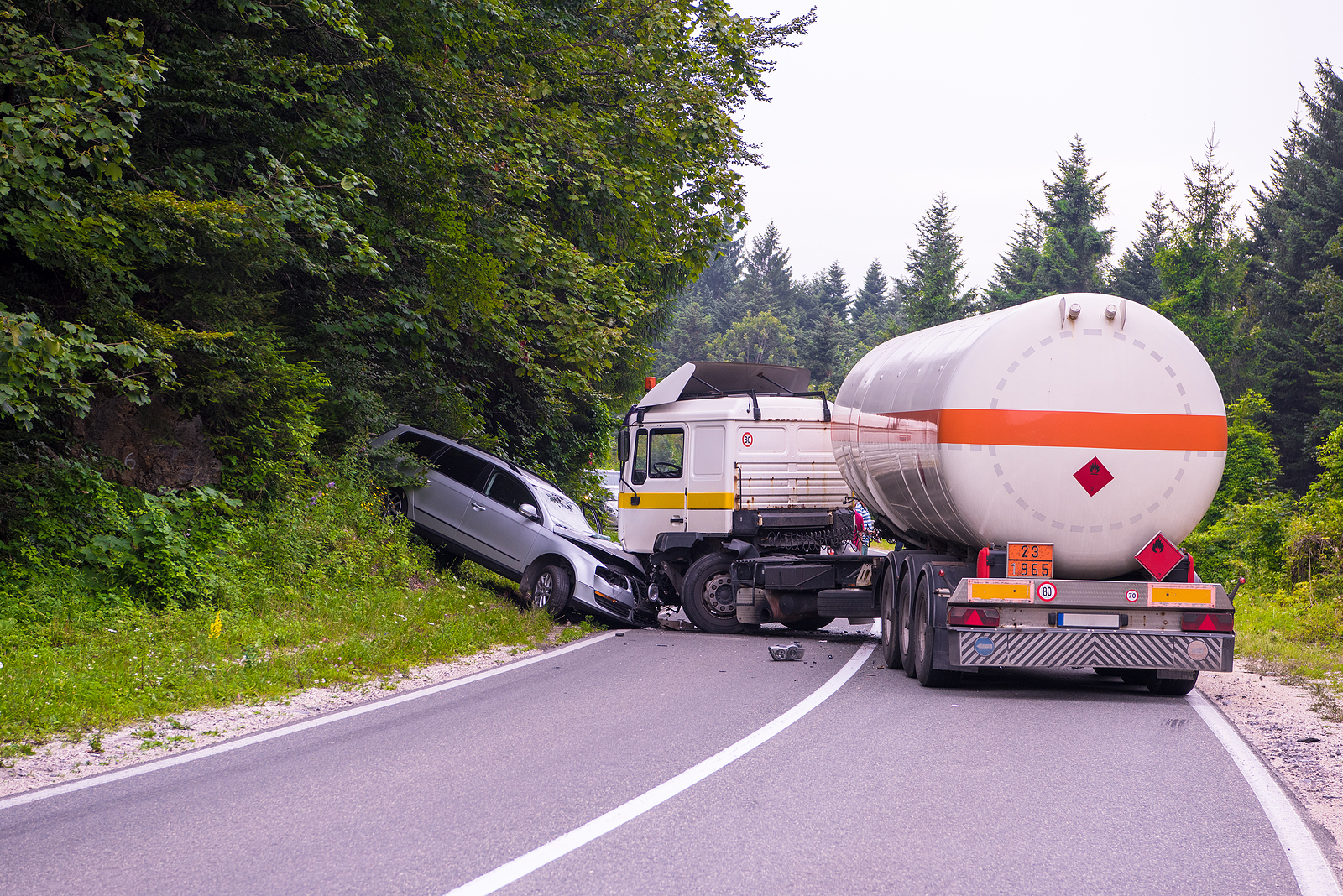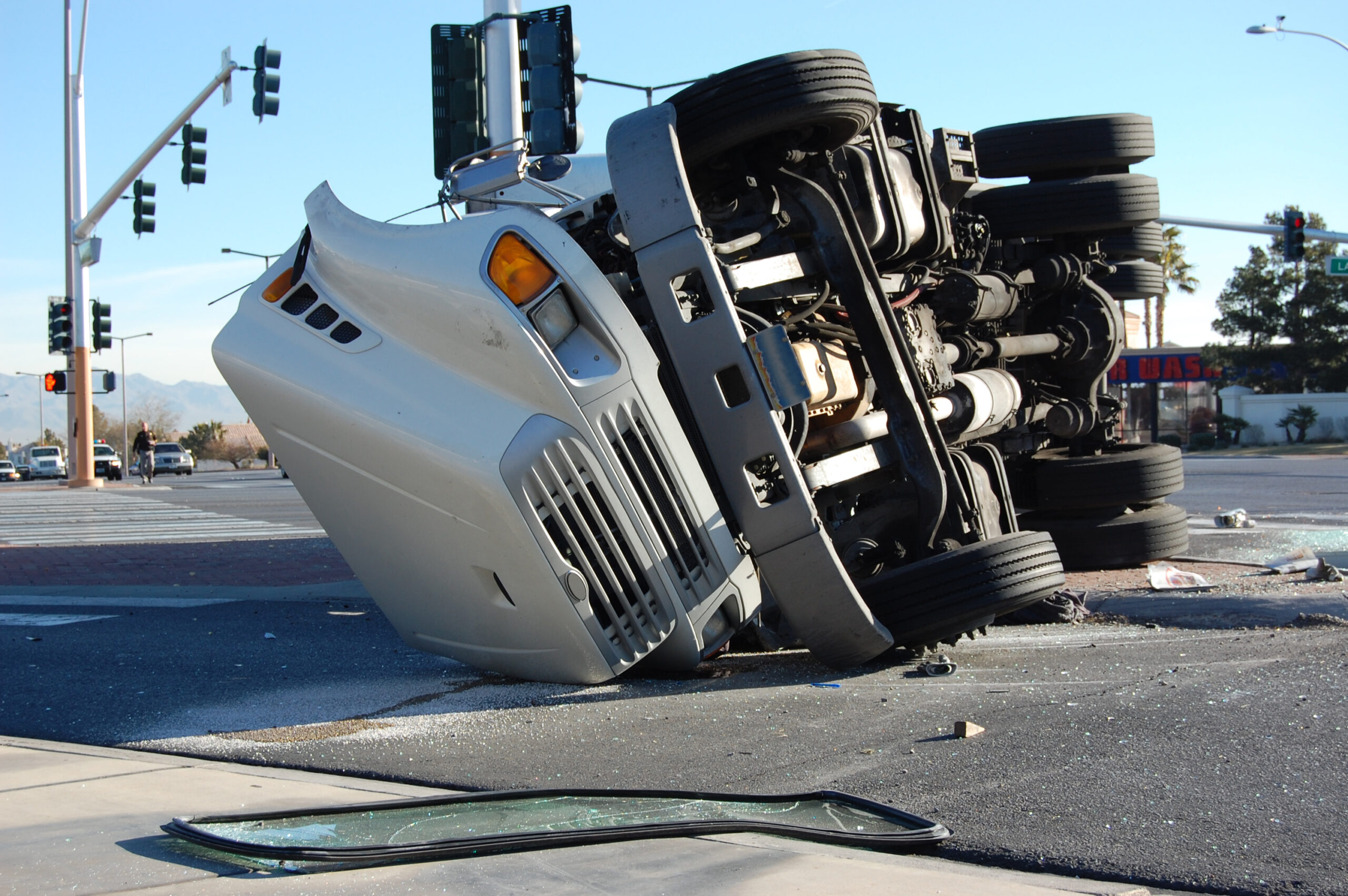Unique Challenges of Trucking Accidents Involving Hazmat Spills
Trucks play a crucial role in the transportation of goods across New York and the United States. They move groceries, supplies, and other materials within regions and coast to coast across the national interstate and highway systems. In some cases, these materials are hazardous substances or chemicals that can cause serious injury and harm to the environment if there is a spill. Around 11 percent of the freight transported by truck is classified as hazardous material, and this could include everything from flammable liquids and explosives to corrosive materials and toxic substances. Trucking accidents are bad enough under normal circumstances, but when an accident involves a hazardous materials spill, it can create unique legal challenges.
Identifying the Responsible Party
When a car accident happens, it’s generally pretty clear who is responsible: the driver. But determining responsibility in accidents involving commercial trucks can be more challenging — and even more so when a hazmat spill is involved. In many cases, it’s still the driver of the truck who is at fault for the accident if they did something incorrectly or were driving distracted, fatigued, or under the influence of a substance and weren’t able to respond appropriately to changes in traffic. However, there are situations where the trucking company or a third party could be responsible.
Trucking companies must abide by the rules and regulations of the Federal Motor Safety Administration. This includes rules for how hazardous materials must be stored, transported, and labeled. If the trucking company failed to follow these processes and that contributed to the accident and spill, the company could be held liable. Trucking companies are more likely to be held liable if the truck driver is an actual employee and not an independent contractor.
Other potential entities that could be partially responsible include the manufacturer of the truck or faulty parts, the truck maintenance company, or other drivers. While rare, if the trucking accident was caused by a problem with poor road conditions, it’s possible that the government entity responsible for maintaining the road could be partially at fault.
More Involved Insurance Negotiations
Hazardous material spills can cost thousands of dollars to clean up, and there can be environmental ramifications that are extremely costly to remedy. The interactions and negotiations with the insurance companies involved are likely to be much more complex when a trucking accident involves hazardous materials. The insurance company has a vested interest in creating doubt that their client has any liability, and this can make it difficult for those affected to get the payouts they deserve. If you’re dealing with an insurance company regarding a trucking accident, it’s a good idea to hire an attorney who can be your representative and communicate directly with the insurance company on your behalf.
Environmental Contamination
Hazardous materials are labeled as such for a reason. They are hazardous to people, plants, animals, and the overall environment if they come into contact with them. For example, a fuel spill into a water source that provides drinking water to a town could result in contamination that is extremely difficult to remedy. Hazardous materials can also seep into the soil or be released into the air, creating immediate risks and long-term environmental concerns.
Exposure to hazardous materials doesn’t always immediately manifest in injuries. In some cases, exposure due to contaminated soil or water can take years before symptoms appear. And by that time, it may be too late for some medical treatments. If you have been exposed to hazardous materials after a trucking accident, it’s imperative that you speak with an attorney about your legal options.
Increased Risk of Injury and Illness
Trucking accidents often result in more serious injuries than regular car accidents because the weight and size of the truck means larger forces are in play. However, when a truck is carrying hazardous materials, it can also increase the risk of serious injuries like burns or lung damage due to the caustic chemicals. Tanker trucks carrying fuel or other flammable substances are more likely to catch fire or explode during a truck accident, and some chemicals can cause issues with breathing and lung function when they are airborne.
Issues With Regulatory Compliance
There are specific procedures that must be followed after a truck accident results in a hazmat spill. The incident must be immediately reported to all relevant local, state, and federal authorities so that a response strategy can be determined and any environmental impact assessed. Depending on the situation, there may also be fines or other financial penalties that factor in if the accident was caused by failure to comply with hazardous material regulations.
Coordinating With Government Agencies
Being involved in a trucking accident that resulted in a hazmat spill means you are highly likely to be dealing with government agencies in some capacity. It’s likely that there will be an in-depth investigation into the cause of the accident and whether there were any violations involved regarding the transport of the hazardous materials. These departments each have their own policies and procedures, and it can be challenging to figure out who you are supposed to be talking to or which agencies are involved.
When you’ve been involved in a major trucking accident that included a hazardous materials spill, you need the experienced representation of The Law Offices of Elke E. Mirabella, PC. Our firm is prepared to deal with serious cases that resulted in serious injury and be your legal advocate as you pursue the compensation you deserve. Call 631-769-7999 to get started.





